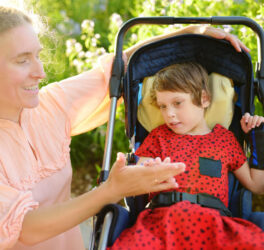
Children with autism traits are more likely than their peers to develop an eating disorder, according to a new UCL study.
Researchers at University College London (UCL) found that children who displayed more autistic traits aged seven were 24 per cent more likely than their peers to have weekly disordered eating behaviours at age 14.
This new study, published in the Journal of Child Psychology and Psychiatry, finds that autistic traits in childhood come before behaviours characteristic of eating disorders, and so could be a risk factor for developing eating disorders.
“We have found that young children with autistic traits at age seven are more likely than their peers to end up developing eating disorder symptoms in adolescence.” said Dr Francesca Solmi
“Most other studies looked at snapshots in time, rather than tracking people over multiple years, so it wasn’t clear whether autism increases the risk of eating disorders, or if symptoms of eating disorder could sometimes resemble autistic traits.”
The study involved 5,381 adolescents who have been participating in longitudinal research from birth as part of the University of Bristol’s Children of the 90s cohort study. The researchers considered whether they had autistic social traits at ages seven, 11, 14 and 16, and disordered eating (fasting, purging, prolonged dieting, or binge-eating) at age 14.
The researchers investigated autistic traits reported by the mother, rather than a diagnosis of autism, meaning that the study findings would involve children who do not necessarily have autism, but also would include children with autism who might not have been diagnosed.
In the study group, 11.2% of girls reported at least one disordered eating behaviour within the previous year (7.3% experience them monthly and 3.9% weekly), compared to 3.6% of boys (2.3% monthly and 1.3% weekly).








